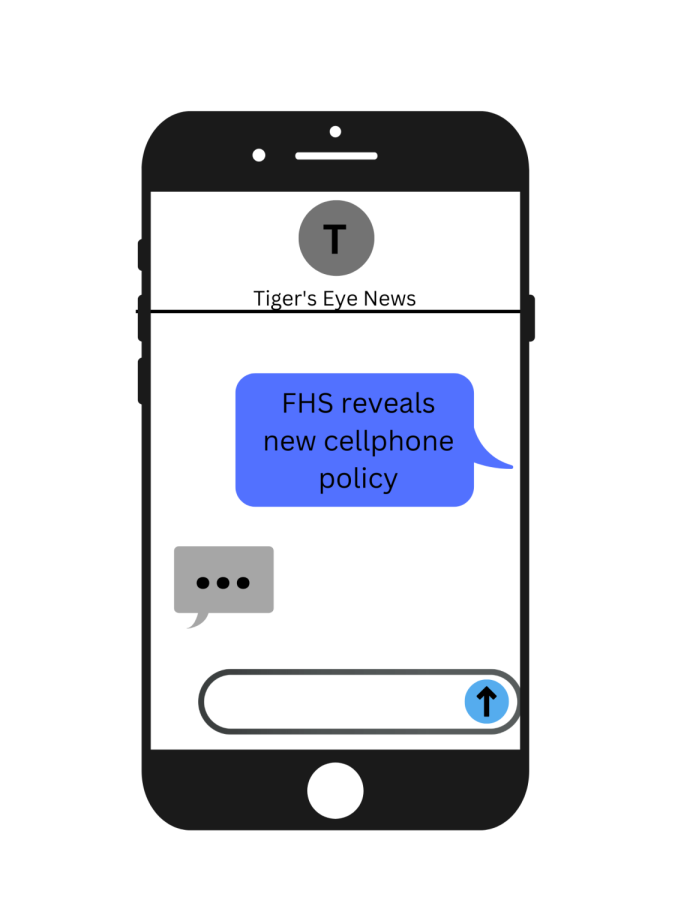When students returned from the winter break, they were greeted with a new cellphone policy created by the FHS administration and staff in response to the problems that have emerged in the classroom.
The new cellphone policy gives teachers the freedom to establish their own rules and expectations for using electronic devices in the classroom. The teachers are strongly in support of the new policy.
“I think it’s much better to have a unified policy among the teaching and administrative staff,” Justin Bigsby, an English teacher, said. “This should provide for more consistency across the building as well as the consequences for violating the policy.”
Students who break the cellphone policy are given two minor infractions, after which they must turn in their phone to the teacher for the duration of the period or the day, depending on how many reminders they received. When a student disobeys instructions to leave their phone at the office for the day, they are sent to the office. If the student refuses, the parent may pick up the phone or the student may be sent home with a suspension for the day.
Many teachers concur that the new policy will benefit the students, despite the fact that the breaches may initially appear harsh.
“I think it is important to have consistent, high expectations building-wide,” Spanish teacher Shea Ahrens said.
Some students are dissatisfied with the new policy because of the high expectations that are placed on them and the consequences for breaking the rules.
“[It] does affect me because I believe kids should have the right to be on their phones, especially in case of a family emergency,” sophomore Harlan Wilcox said. “You can’t be by your phone to be able to answer.”
Other students, however, disagree that the new policy will have an impact on anyone.
“The cellphone policy has no impact on me because I do my work,” senior Walter Campos said. “We’re always doing something interactive [in class], so I rarely reach for my phone.”
Students who are in more engaging classes stay focused in class and are less likely to want to use their phones as a distraction.
“The major reason students don’t listen and would rather be on their phones is that what they’re being taught is boring and doesn’t interest them,” Wilcox said. “Taking away their phones merely makes them not listen even more.”
























